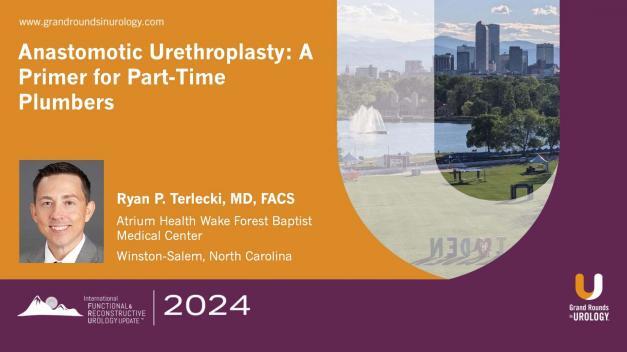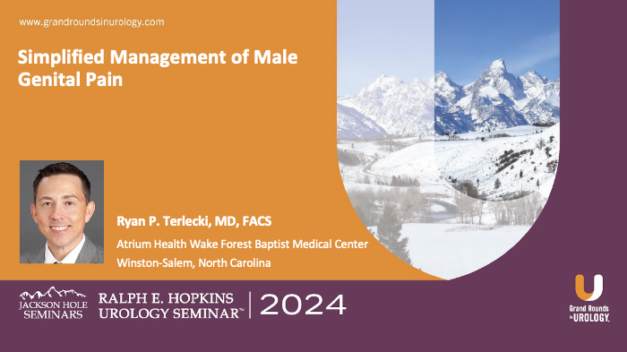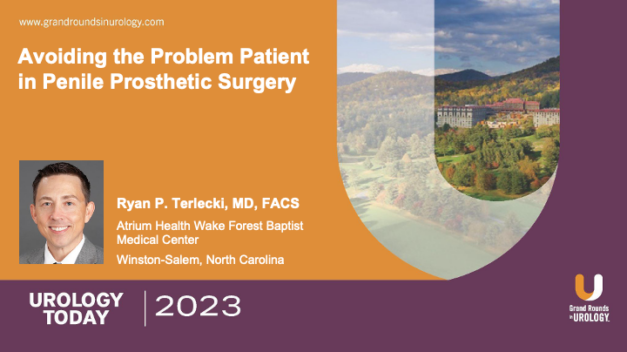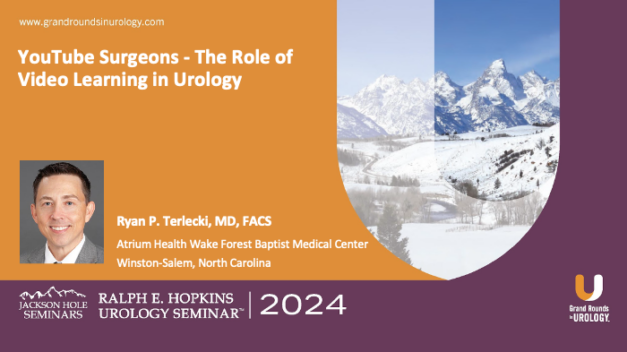Anterior Urethroplasty – Bulbar (A Primer For Part-Time Plumbers)
Ryan P. Terlecki, MD, FACS, emphasizes key elements for success in urethral surgery, focusing on preoperative planning, technical precision, and effective patient management.
A central message in this 11-minute presentation is to set realistic patient expectations while acknowledging that success is never guaranteed even with advanced surgical techniques. Terlecki compares conservative endoscopic management with surgical options, emphasizing that surgical planning requires careful consideration of anatomy, patient history, and the specifics of the stricture.
Dr. Terlecki stresses meticulous preparation, including the importance of standard protocols. Preoperative collaboration with anesthesia and other specialties is encouraged, along with video primers to prepare team members. Intraoperative decisions, such as when to transition from endoscopic to open surgery, are highlighted as critical moments requiring flexibility. He stresses that surgeons should stay calm under pressure and stick to their plan, even when faced with unexpected challenges.
Read More




